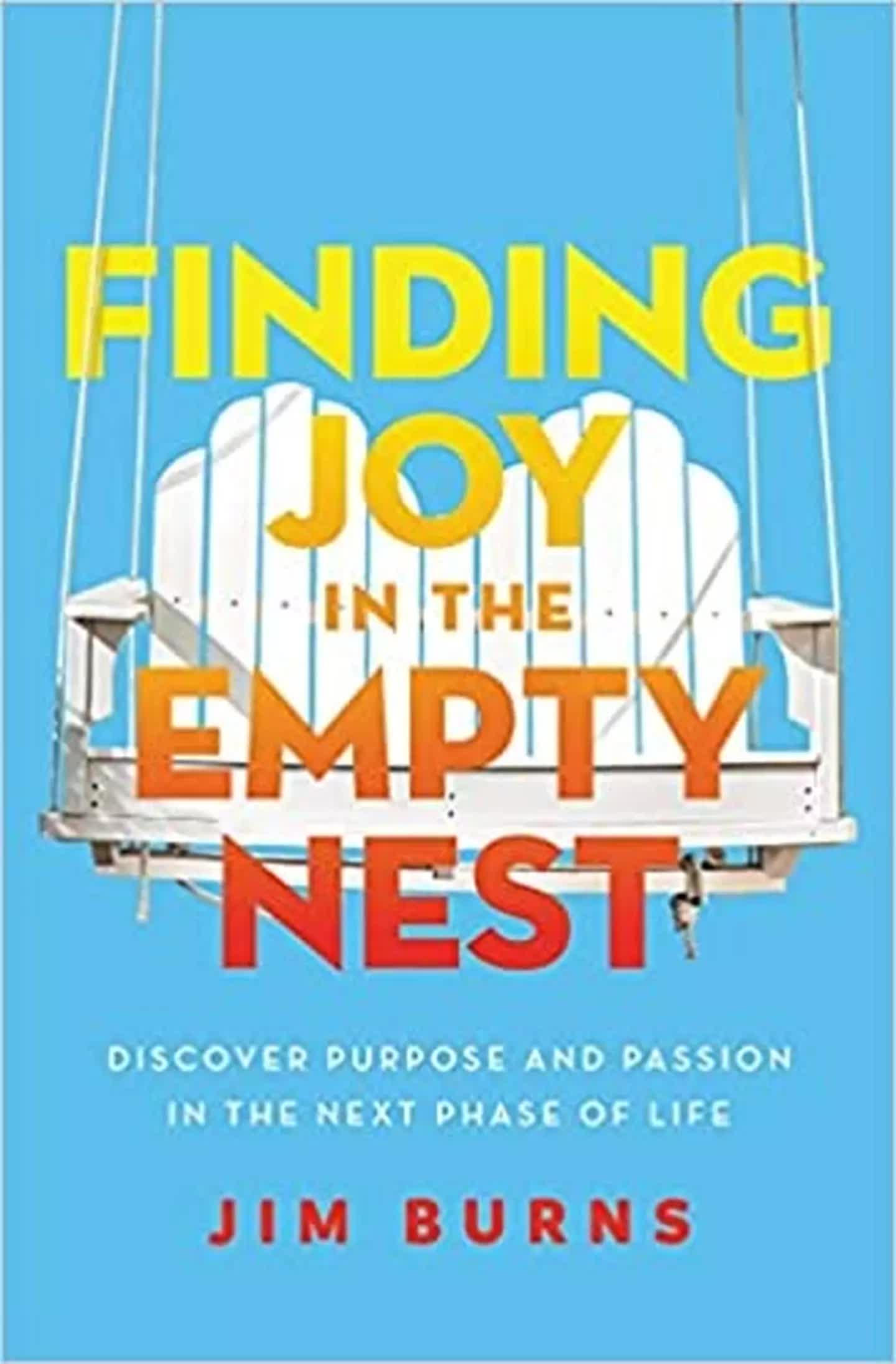Do You Have Empty Nest Syndrome?

The dread for many people as they jump into the empty nest is that they will become like the classic line from the Billy Crystal movie, City Slickers. “You spend most of your time wandering around malls looking for the ultimate frozen yogurt and muttering: 'How come the kids don't call?'” And for some, that isn’t far from their experience. Maybe we have already found the ultimate frozen yogurt, or perhaps since the average age someone in the United States enters the empty nest is 48.9 years old, we still have a job and other responsibilities. The one thing my research and talking with hundreds of empty nesters showed me is that most people are seldom prepared and are not totally looking forward to this new phase of life. One woman I know put it this way, “I was terrified. I had no idea what I was going to do now that I was no longer anchored by school runs and filling the refrigerator. When I looked at my life without my children in the house, it looked dark and gloomy. I dreaded it. My existence seemed almost meaningless, like part of me had died.” When I did focus groups with people from all over the country, I found this sentiment to be common. These feelings and my own experience compelled me to research what is commonly called the “empty nest syndrome.”
The empty nest syndrome isn't a clinical diagnosis. Instead, it is a phenomenon in which parents experience feelings of sadness, loss, angst, and loneliness when the last child leaves home. The feelings are normal but most often unanticipated. One man told me, “When my son left home, I was distraught. I felt like I had lost a part of myself. I was gutted.” As with so many parents, married or single, one of the common occurrences was their intense feelings snuck up on them and often coincided with other issues they were already facing – dealing with an illness in the family, taking on the needs of aging parents, the breakdown of their own marriage, moving, financial stress, or adult children violating their family values. Plus, adjustment to quietness in the home which was good and rough at the same time.
I created this Empty Nest Syndrome Quiz to help you identify how you are doing. There are no right or wrong answers, but this can become a bit of a guide to help you decide what work you might need to do to discover purpose and passion for this next phase of your life. With so many of us living longer than any previous generation this empty nest phase may be the longest phase of our life.
The Empty Nest Syndrome Quiz
On a scale of 1 to 5, mark the intensity of your feelings.
_____ I have experienced a sense of loss in the empty nest.
_____ I have had trouble adjusting to the change in my parental role.
_____ I have experienced a lack of purpose in life since my kids left.
_____ I often feel deeply alone.
_____ I have felt a loss of interest or energy in my love life.
_____ I have felt depressed or anxious more often.
_____ I have noticed a loss of self-identity since the children left.
_____ I sometimes feel like the best years are behind me.
_____ I have a lot of fear about the future.
_____ I am often preoccupied with my absent children’s safety and welfare.
Score
40–50 Full alert! But don’t despair just yet. It’s gonna be okay.
30–40 Intense feelings have brought you here. Keep working on it.
20–30 Okay, average level of freaking out. Not too bad.
10–20 Good for you. Maybe you should be writing about the empty nest!
0–10 Hmm. That doesn’t seem right. Are you sure?
Your performance on this quiz does not indicate whether you pass or fail at living in the empty nest. It’s more of a self-awareness experience to see how much effort it will require to put your life in order and make your empty-nest years the best. Remember, a portion of your life moved out of the house. Now it’s time to reinvent your life and not only thrive but have a different and better relationship with your adult kids.
Now What?
I have kept this quote from the Old Testament close to my heart as I’ve tried to personally navigate our own empty nest: “Be alert, be present. I’m about to do something brand-new. It’s bursting out! Don’t you see it? There it is! I’m making a road in the desert, rivers through the badlands.” (Isaiah 43:19 MSG) As you launch your kids into the world, be alert, present, and prepared: you are launching yourself as well. Your children are not who they once were, and neither are you. When your child leaves home and their life fills up with fresh experiences, follow their lead.
Reboot and Reconnect
Patricia and Toby knew that if they were going to find success in their empty nest season of life, they would need to reboot their relationship, reconnect with each other, and take some of the large amount of time they had focused on the kids and reinvent this new season for them as a couple. Pat and Toby quickly admitted they had not only put their marriage on hold, but they had swept some issues under the mat about their relationship with the excuse that they were focusing on the kids. For them to reboot and reconnect they chose some simple changes:
- A non-negotiable date night where they put time and energy into their relationship.
- They planned a two-week vacation, driving up the coast to simply enjoy time together and doing what they loved to do: hiking, fun food, exploring, and plenty of romance.
- They both joined a gym.
- They decided to redo their backyard together.
They made no major changes but began to lean into this new life with some energy and enthusiasm. They found that to unplug and reboot their life was what they needed to find joy in their second half. And games are often won in the second half.
Try New Things
You would love Isabella. She is a single mom who experienced two huge losses close to each other: a divorce and her youngest daughter moving away to a college several hours from home. After a week of eating everything in sight and cuddling with her dog on the couch, she got up and faced her fears. She knew she needed to try new things and make a habit of them. Here was part her list:
- Plan new activities. She decided to do something new once a week for two months.
- Make new friends. She joined a Bible Study at her church.
- Plan a trip to New York City for some “retail therapy” with her daughter.
- Deal with a few ghosts from her past that she had not dealt with before because of her busyness of life, raising her daughter, and work. This meant getting some counseling and gaining the tools to move forward.
Again, it was in the simplicity that like Patricia and Toby, she found a new normal.
A Fresh Start Begins with You
As I met so many others like Patricia, Toby, and Isabella, I observed that the ones who overcame the empty nest syndrome and thrived in their second half took some important steps toward a fresh start. Here is what they did:
- They closed the chapter. They accepted the fact that life was going to be different, but it didn’t have to be bad. It meant properly closing one chapter to open the next so they could celebrate this new season of life to the fullest.
- They chose to change their attitude. It is difficult to create a clean beginning if you are feeling too negative about the future. Your circumstance may not change, but your attitude can change and that makes all the difference in the world.
- They set new goals. The goals were usually simple such as signing up for a gym membership, but sometimes they were more challenging like changing careers or going back to school. They recognized they did have more time to work on their goals now that the kids were out of the house.
- They made new friends and enhanced their old friendships. It seemed like most often the people who thrived in the empty nest continued developing “replenishing relationships” and deepened friendships. In the second half, many people defined their happiness around connecting with friends and family on a deeper level. One woman told me, “I never thought my closest friends would be those I found after age 50.”
When you enter the empty nest, you may feel too tired to rebuild or create new opportunities. I get it. You just ran a twenty-year marathon, and most likely there was little, if any celebration at the end of it. Most people experience a gamut of feelings. But don’t be afraid of the quiet. It’s in the stillness where you will find the strength to reinvent what needs to be reinvented. It’s in the stillness where you can “be alert, be present.” With God’s help, you are about to do something brand-new and celebrate a new second half adventure.
Photo credit: ©GettyImages/XiXinXing

Originally published May 18, 2023.




